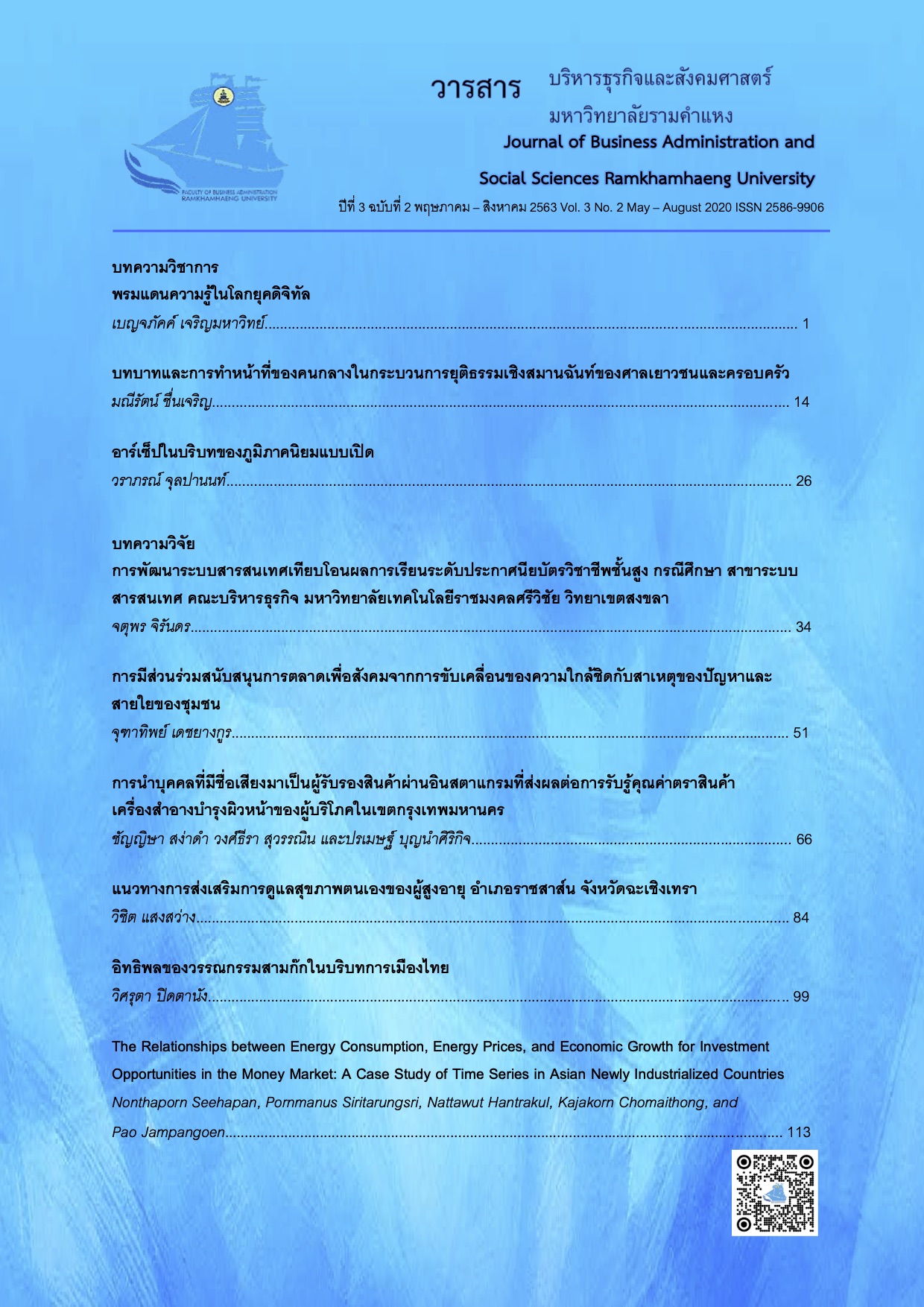RCEP in the Context of Open Regionalism
Main Article Content
Abstract
In this article, the researcher focuses on the principles of RCEP, RCEP trade negotiating mechanisms, and the role of Thailand in closing RCEP deals using the concept of open regionalism as a framework for analysis. Findings show that RCEP is a modern free trade agreement that covers ASEAN and free trade agreement partners i.e. China, Japan, South Korea, India, Australia, and New Zealand in the age of modern trade. The RCEP Trade Negotiating Committee is an important mechanism in the operations. Thailand as the host of the ASEAN Summit in 2019 played an important role in persuading the fifteen members of RCEP to give consent to the agreement. India could join the agreement in the next two or three years.
Article Details
เนื้อหาและข้อมูลในบทความที่ลงตีพิมพ์ในวารสารบริหารธุรกิจและสังคมศาสตร์ มหาวิทยาลัยรามคำแหง ถือเป็นข้อคิดเห็นและความรับผิดชอบของผู้เขียนบทความโดยตรง ซึ่งกองบรรณาธิการไม่จำเป็นต้องเห็นด้วย หรือร่วมรับผิดชอบใดๆ
บทความ ข้อมูล เนื้อหา รูปภาพ ฯลฯ ที่ได้รับการตีพิมพ์ในวารสารบริหารธุรกิจและสังคมศาสตร์ มหาวิทยาลัยรามคำแหง ถือเป็นลิขสิทธิ์ของวารสารบริหารธุรกิจและสังคมศาสตร์ มหาวิทยาลัยรามคำแหง หากบุคคลหรือหน่วยงานใดต้องการนำบทความทั้งหมดหรือส่วนหนึ่งส่วนใดไปเผยแพร่ต่อ หรือเพื่อกระทำการใดๆ จะต้องได้รับอนุญาตเป็นลายลักษณ์อักษรจากวารสารบริหารธุรกิจและสังคมศาสตร์ มหาวิทยาลัยรามคำแหง ก่อนเท่านั้น
References
กรมเจรจาการค้าระหว่างประเทศ. (2562). FTA CORNER. ความคืบหน้าการสรุปผลการเจรจา RCEP. วารสารการค้าระหว่างประเทศ, 6(23), 18-19.
กระทรวงการต่างประเทศ. (2552). กฎบัตรอาเซียน. กรุงเทพฯ: ผู้แต่ง.
ธวัชชัย กมลวรรณ. (2563). ไขปริศนา 7 ปี “อาร์เซ็ป”. วารสารการค้าระหว่างประเทศ, 6(24), 26-27.
ปิยะณัฐ สร้อยคำ. (2562). อาเซียนในสายตาอินเดีย นเรนทรา โมดิ เยือนไทย ล้มเหลวหรือสำเร็จ. สืบค้นเมื่อ 10 มกราคม 2020, จาก http://waymagazine.org/modi-and-thailand/.
Bergsten, F. (2009). Open Regionalism. Retrieved July 27, 2012, from http://www.iie.com/publications/wp/wp.cfm?ResearchID=152.


